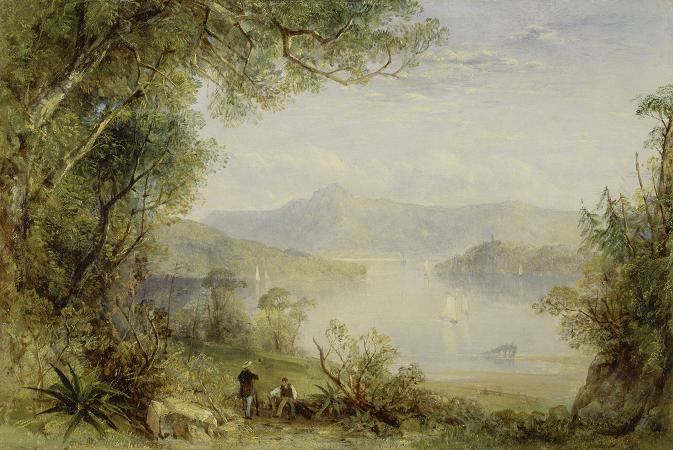New Jersey. New Jersey is a state in the Mid-Atlantic and Northeastern regions of the United States. It is bordered on the north and east by the state of New York; on the east, southeast, and south by the Atlantic Ocean; on the west by the Delaware River and Pennsylvania; and on the southwest by Delaware Bay and the state of Delaware. New Jersey is the fourth-smallest state by area but the 11th-most populous, with 9,288,994 residents as of 2020 and an area of 8,722.58 square miles, making it the most densely populated of the 50 U.S. states. New Jersey's state capital is Trenton, while the state's most populous city is Newark. All but one county in New Jersey lie within the combined statistical areas of New York City or Philadelphia; consequently, the state's largest metropolitan area falls within Greater New York. New Jersey was first inhabited by Native Americans for at least 2,800 years, with the Lenape being the dominant group by the time Europeans arrived in the early 17th century. Dutch and the Swedish colonists founded the first European settlements in the state. The English later seized control of the region, naming it the Province of New Jersey, after the largest of the Channel Islands, Jersey, and granting it as a colony to Sir George Carteret and John Berkeley, 1st Baron Berkeley of Stratton. New Jersey was the site of several important battles during the American Revolutionary War. In the 19th century, factories in the Big Six cities of Camden, Paterson, Newark, Trenton, Jersey City, and Elizabeth helped drive the nation's Industrial Revolution. New Jersey's central location in the Northeast megalopolis fueled its rapid growth and suburbanization in the second half of the 20th century. At the turn of the 21st century, the state's economy increasingly diversified, while its multicultural populace began reverting toward more urban settings within the state, outpacing the growth in suburbs since 2008. As of 2020, New Jersey was home to the highest number of millionaires per capita of all U.S. states, with 9.76% of households, more than 323,000 of 3.3 million statewide, meeting the criteria. Based on 2017 data, it was the second-wealthiest U.S. state by median household income. New Jersey's public school system consistently ranks at or among the top among all fifty U.S. states. Main article: History of New Jersey Around 180 million years ago, during the Jurassic Period, New Jersey bordered North Africa. The pressure of the collision between North America and Africa gave rise to the Appalachian Mountains. Around 18,000 years ago, the Ice Age resulted in glaciers that reached New Jersey. As the glaciers retreated, they left behind Lake Passaic, as well as many rivers, swamps, and gorges. New Jersey was originally settled by Native Americans, with the Lenni-Lenape being dominant at the time of contact. Scheyichbi is the Lenape name for the land that is now New Jersey. The Lenape were several autonomous groups that practiced maize agriculture in order to supplement their hunting and gathering in the region surrounding the Delaware River, the lower Hudson River, and western Long Island Sound. The Lenape society was divided into matrilinear clans that were based upon common female ancestors. These clans were organized into three distinct phratries identified by their animal sign: Turtle, Turkey, and Wolf. They first encountered the Dutch in the early 17th century, and their primary relationship with the Europeans was through fur trade. Main articles: Colonial history of New Jersey, New Netherland, New Sweden, Province of New Jersey, East Jersey, West Jersey, and Dominion of New England The Dutch became the first Europeans to lay claim to lands in New Jersey. The Dutch colony of New Netherland consisted of parts of modern Middle Atlantic states. Although the European principle of land ownership was not recognized by the Lenape, Dutch West India Company policy required its colonists to purchase the land that they settled. The first to do so was Michiel Pauw who established a patronship called Pavonia in 1630 along the North River which eventually became the Bergen. Peter Minuit's purchase of lands along the Delaware River established the colony of New Sweden.
more...













